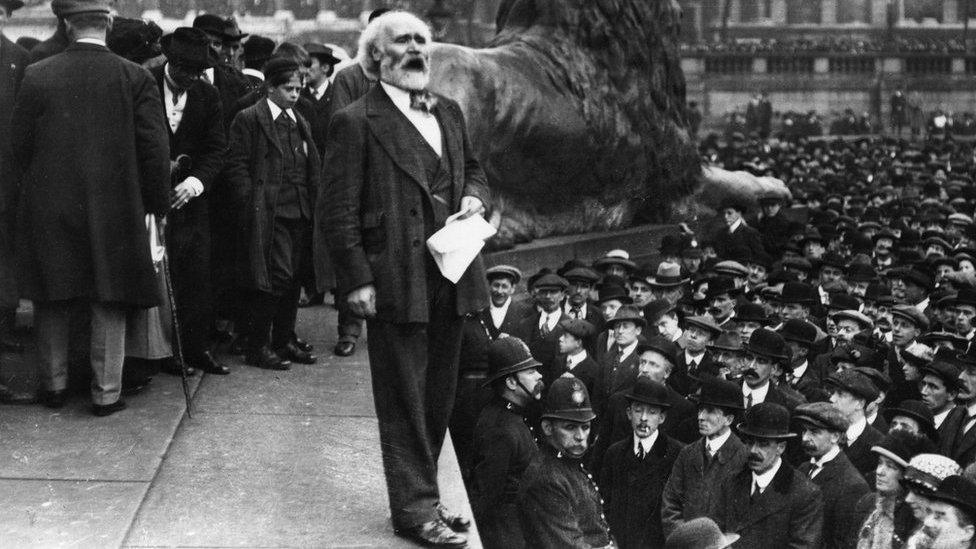WW1 soldiers' farewell notes on Llangollen bridge being lost to damp
- Published
Rain and damp have erased the messages over the years
As he waited for the train to take him to the front, one soldier took a pencil and wrote of his hope of seeing his unborn baby.
But AJ Candy would never get his wish as he was killed in battle in World War One.
Now it is feared his farewell note and others written by soldiers on the bricks of a bridge in Llangollen, Denbighshire, could be lost forever.
There are concerns damp could erase them unless action is taken.
The signatures, scrawled on the bricks under the bridge close to Berwyn station, are thought to have been etched onto the wall as the soldiers waited to be taken to Flanders - but it is feared many have already been erased by algae and rain dripping through the railway.
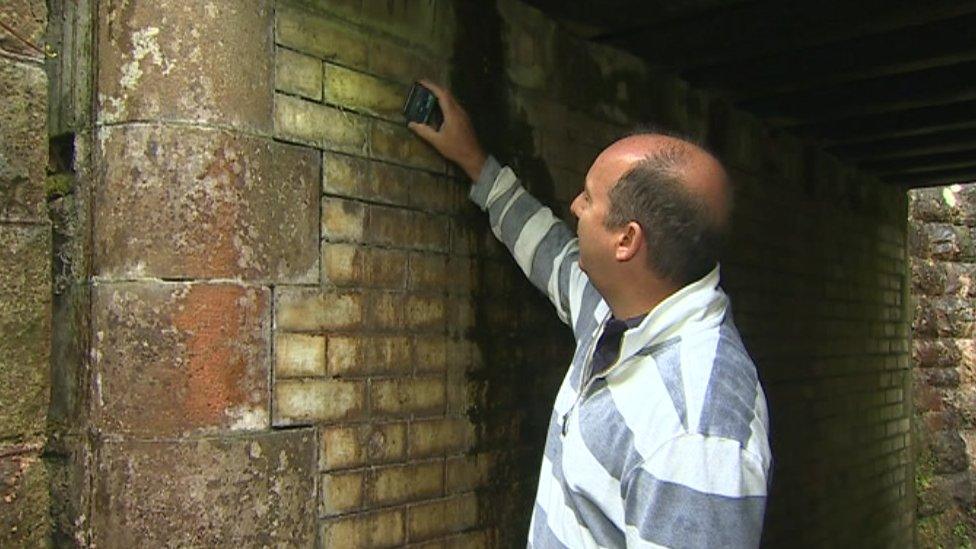
Iwan Hughes stumbled across the marks when he was walking in Denbighshire
Iwan Hughes, a teacher from Flint, stumbled across the markings when he was exploring the area while on a holiday walk with a friend.
But it was not until they took a closer look that they realised the signatures' significance.
"We just stopped to have a look, being inquisitive, and we noticed the dates on some of them, and that some of them also had people with military ranks," he said.
"We realised what they were: they were in fact farewells if you like, soldiers saying farewell or writing things on the tiles, one of them even saying that he wished he could have this baby."
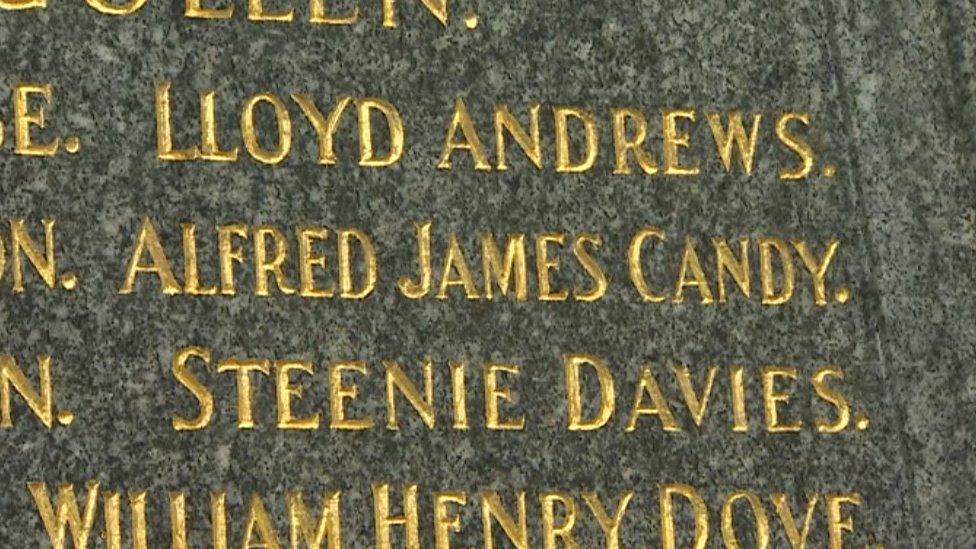
Alfred James Candy's name is on the Llangollen war memorial which pays tribute to those who died in World War One
Not a lot is known about the solider named Alfred James Candy, whose name is one of four written on the wall which matches those who died in battle listed on the town's war memorial.
"He must have walked along this path here to catch the train, just at the station up the road, and never returned," said Mr Hughes, who said he was making it his mission to find out more about the men behind the notes.
The Llangollen graffiti was last recorded in 2011 after being photographed.
But over the years rain and damp have started to erase the names on the wall, which local historians believe were written in "trench pencil" - a pencil given to them as part of their kit - as they mulled going to war.
"The water and the algae has already obliterated the signatures of some of these men, like they themselves were obliterated on the fields of France and Belgium," said Mr Hughes, who wants to see the council or Cadw - the Welsh heritage body - take action to protect them from disappearing.
He believes they are of historical significance no matter what people's views on the war.
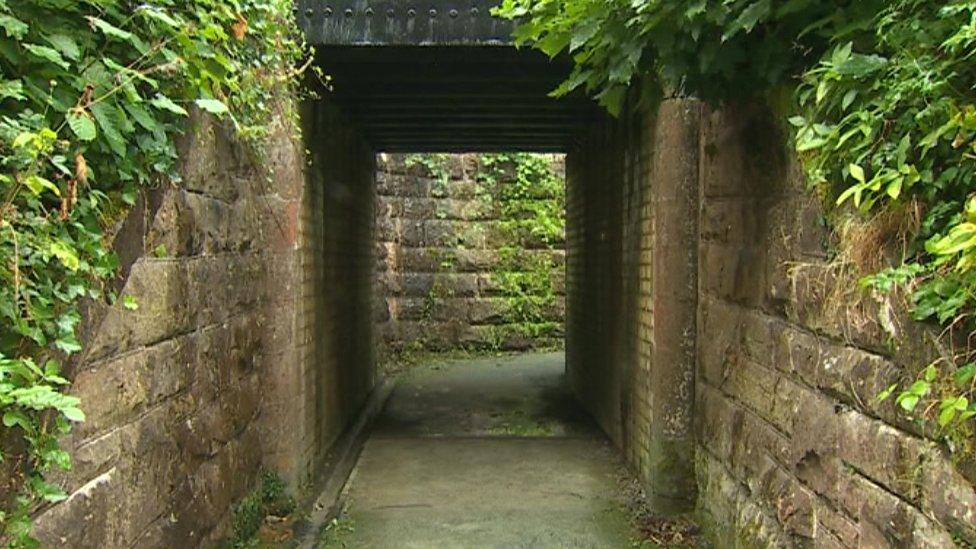
It is thought the soldiers wrote the notes using "trench pencils" as they waited for their train to take them to the front
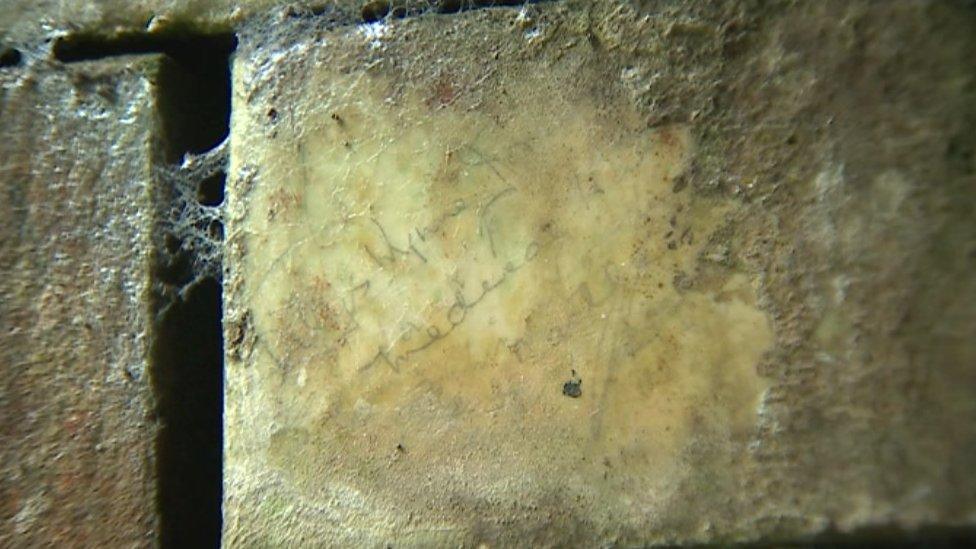
The notes are slowly being erased by damp and rain, but have not been touched by modern graffiti
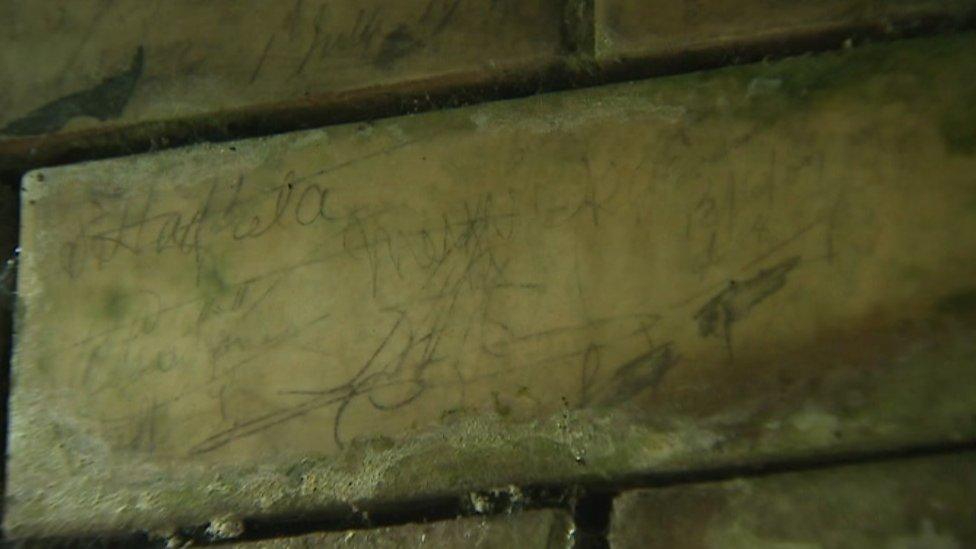
Peter Jones, local historian and Llangollen Museum trustee, who has been trying to identify the soldiers, said the messages from the war needed to be protected.
"Some of the marks are "next stop Berlin" and various things like that, some of them left little messages," he said.
"It brings it home to you, it gives an insight into the private lives of the soldiers involved."
But he now fears it is "too late" to preserve them, adding: "I'd like to have it sort of covered in Perspex and put in a museum, but that's not going to happen."
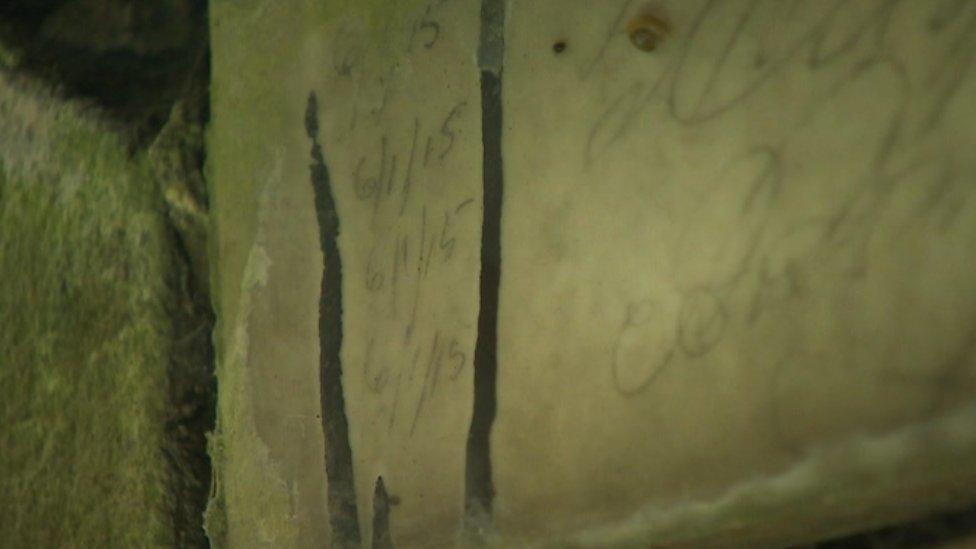
The dates on one of the notes are thought to show when they were written
- Published11 August 2018
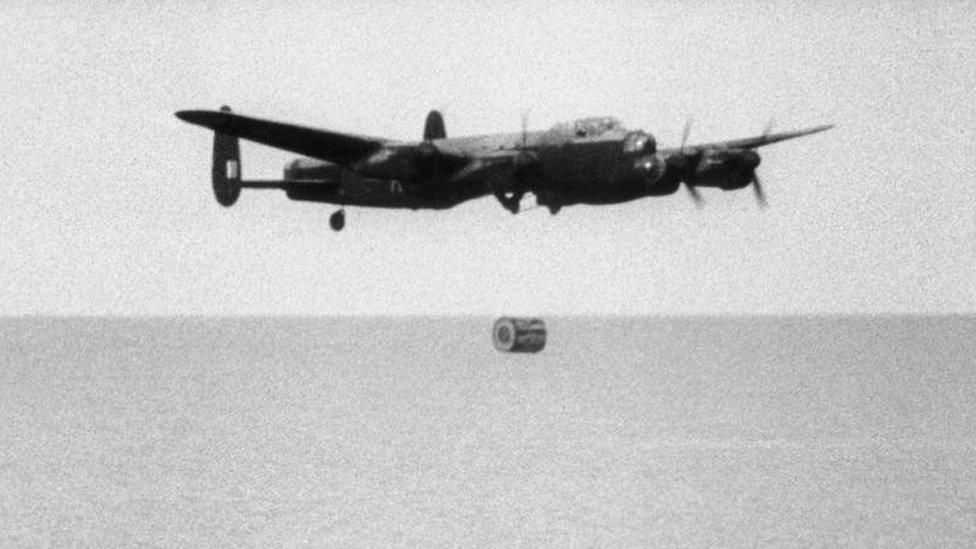
- Published5 May 2018
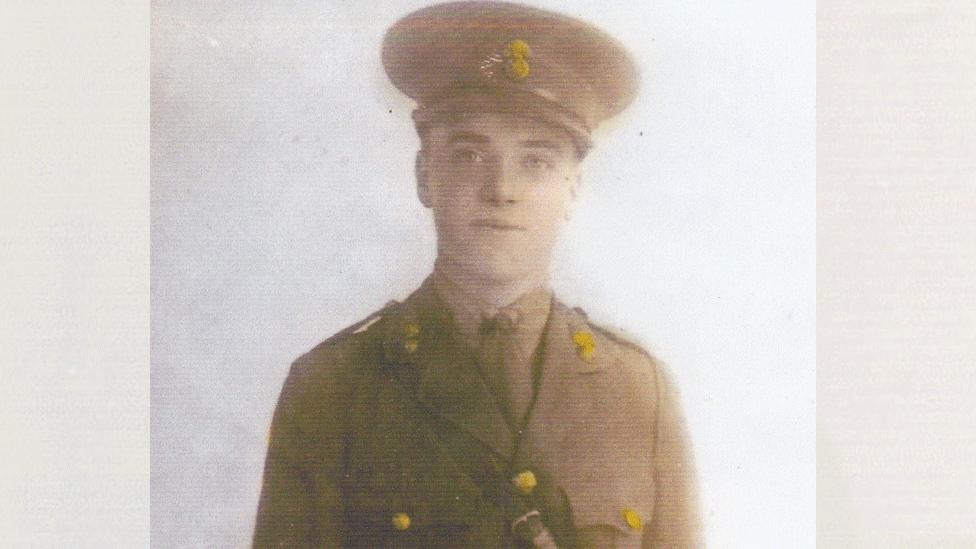
- Published28 April 2018
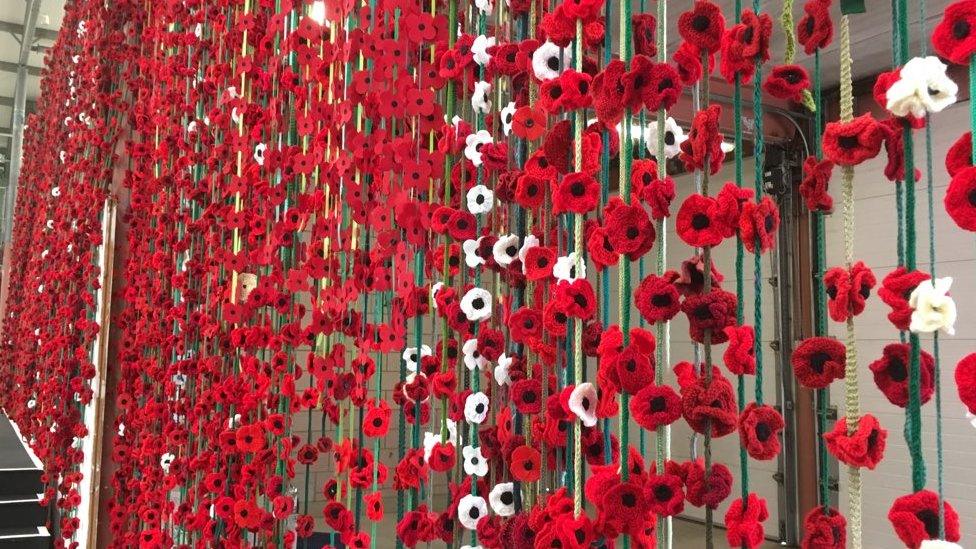
- Published23 August 2017
